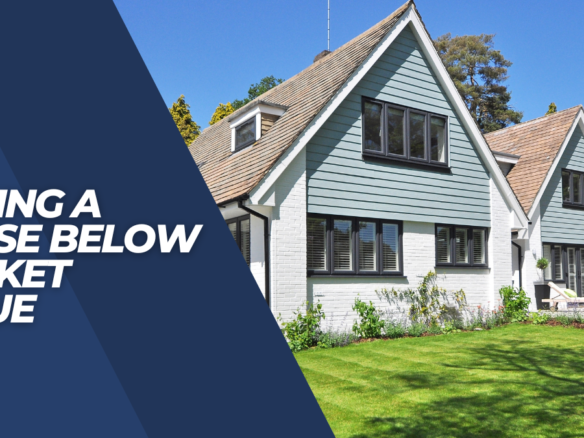Every square foot counts when buying or selling a home, influencing a property’s price and attractiveness. The question is, does a garage count as square footage of a home? The answer to this question can significantly impact how a property is valued and marketed.
Table of Contents
- Understanding Square Footage in Real Estate
- The Role of Garages in Property Listings
- Criteria for Including Spaces in Square Footage
- Does a Garage Count as Square Footage?
- Factors Affecting Garage Inclusion in Square Footage
- Impact of Garage Square Footage on Home Value
- Regional Variations in Counting Garage Square Footage
- How to Accurately Measure Your Home’s Square Footage
- Renovations and Their Impact on Square Footage
- Misconceptions About Garages and Square Footage
- Expert Tips for Homeowners and Buyers
- The Future of Garages in Home Design
- Conclusion: Does a Garage Count as Square Footage?
Understanding Square Footage in Real Estate
Square footage is a critical metric in real estate that helps determine a home’s market value and appeal. It refers to a property’s livable, heated, and cooled space. Understanding what home areas are counted towards this measurement is essential for sellers and buyers.
The Role of Garages in Property Listings
Traditional Views on Garages
Traditionally, garages have served a singular purpose: to house vehicles and store belongings. This utilitarian view segregates garages from the living quarters, often excluding them from the total square footage of a home.
Garages in Modern Homes
However, modern trends show a shift in how homeowners perceive and utilize garages. Many now transform these spaces into functional areas like home offices, gyms, or additional living quarters. This evolution prompts reevaluating their role in a home’s square footage.
Criteria for Including Spaces in Square Footage
Legal Standards
Legal criteria vary by jurisdiction but generally require spaces to be finished and integrated with the main living area to count toward square footage.
Architectural and Design Perspectives
Architectural considerations also influence whether spaces like garages are included, with emphasis on usability and flow within the home’s overall design.
Does a Garage Count as Square Footage?
Perspectives from Real Estate Professionals
Real estate professionals typically draw a clear line: a standard, unfinished garage does not count towards a home’s square footage. However, if a homeowner converts a garage into a livable, climate-controlled space, it may qualify for inclusion, provided it meets local building standards.
Legal and Regulatory Considerations
Local building codes and zoning regulations dictate the criteria for including garages in square footage calculations. Homeowners must navigate these regulations, which vary by jurisdiction, to understand how their garage conversion projects might impact their home’s official square footage.
Factors Affecting Garage Inclusion in Square Footage
The debate over including a garage’s square footage in a home’s total area hinges on factors like whether the garage is attached or detached and its potential for conversion into a livable space.
Conversion and Usability
Garages converted into living spaces may meet the criteria for inclusion if they comply with local building standards and provide functional living areas.
Impact of Garage Square Footage on Home Value
Including a garage in a home’s square footage can significantly impact its market value and desirability among potential buyers, especially in markets where space is at a premium.
Regional Variations in Counting Garage Square Footage
Local real estate practices and regulations play a crucial role in determining whether a garage’s area is included in the square footage of a home, leading to variations across different regions and countries.
How to Accurately Measure Your Home’s Square Footage
Accurate measurement of a home’s square footage is essential for sellers and buyers, as it directly impacts a property’s valuation and marketability. Whether you’re listing a property or considering a purchase, understanding the precise size of the home, including any garage space that qualifies, is critical.
Tools and Techniques
To accurately measure your home’s square footage, you will need a tape measure, a calculator, and a notepad to record measurements. Start by measuring the length and width of each room, including living spaces, bedrooms, and any converted areas, such as garages that are now living spaces. Multiply the length by the width to get the square footage of each room. Try to break them into smaller, rectangular sections for irregularly shaped rooms and measure each separately. Add up the square footage of all areas to get the total living space.
Professional Assessment
Consider hiring a professional appraiser or surveyor for the most accurate square footage. Professionals are experienced in measuring homes and understanding local regulations regarding what spaces can be included in the total square footage. This is particularly important if you have a converted garage, as professionals can determine whether it meets the criteria for inclusion in the living space.
Renovations and Their Impact on Square Footage
Renovating your home, especially converting a garage into a living space, can significantly affect your property’s square footage and, consequently, its value. Understanding these impacts is crucial for making informed decisions about renovations.
Garage Conversions
Converting a garage into a living space is a popular renovation that can add valuable square footage to your home. However, for this new space to be included in the official square footage, it must be permanently converted into a livable area, meeting all local building codes and regulations. This often involves installing heating and cooling systems, proper insulation, and ensuring direct access from the main part of the house.
Legal Implications
Before undertaking a garage conversion, it’s essential to research and comply with local building codes and zoning regulations. This may require obtaining permits and conducting inspections to ensure the renovation meets all legal standards. Failing to adhere to these regulations can result in fines, difficulties in selling the property, and challenges in including the converted space in the home’s square footage.
Misconceptions About Garages and Square Footage
The topic of garages and square footage is fraught with misconceptions that can lead to confusion for homeowners and buyers.
Common Myths Debunked
One common myth is that sellers can include all garages in a home’s square footage. In reality, only garages converted into living spaces that meet specific criteria can be counted. Another misconception is that any DIY conversion will automatically increase a home’s value and square footage, which is not the case without proper permits and adherence to building codes.
The Truth Behind the Numbers
Understanding the specific conditions under which a garage or any space is included in square footage calculations is critical. This often involves factors like heating, cooling, and accessibility. Getting accurate information from real estate professionals or local authorities can clarify these issues.
Expert Tips for Homeowners and Buyers
Navigating the complexities of square footage in real estate requires insight and careful consideration.
Navigating Listings
When examining property listings, look closely at the square footage details provided. Be wary of listings that ambiguously include garage spaces without clear indications that they meet the criteria for living space.
Making Informed Decisions
For buyers, understanding what is and isn’t included in the square footage can impact your valuation of the property. For sellers, accurately listing your home’s square footage, including any qualifying garage conversions, can prevent legal issues and ensure a fair market price.
The Future of Garages in Home Design
Trends in Home Construction
Modern homes increasingly incorporate garages as functional living spaces, reflecting a trend towards more versatile and adaptable home designs. This evolution is influencing how garages are viewed regarding square footage and property value.
Evolving Homebuyer Demands
Today’s homebuyers are looking for homes that can adapt to various uses, from remote work to fitness and entertainment. The flexibility converted garages offer to meet these demands makes them an attractive feature in the real estate market.
The question. ‘Does a garage count as square footage?’ Is complex. It depends on various factors, including local regulations and the specific characteristics of the garage itself. Understanding these nuances is essential for anyone buying, selling, or valuing a home.
Conclusion: Does a Garage Count as Square Footage?
Determining whether a garage counts as square footage is an aspect of real estate that varies by location, design, and use. Both sellers and buyers should be well-informed about the implications of including or excluding garage space in square footage calculations. As the role of garages continues to evolve in home design and utility Understanding these factors will remain crucial for navigating the housing market effectively.




